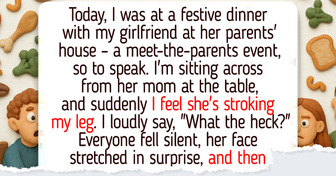Fighting to restore love and peace in my marriage was so frustrating until I saw a video of a lady's testimony. It was a whole experience I never thought could have been possible. My husband and I are happily reunited in Love and harmony, All thanks to Ifa for the Help he rendered to me and my family. reach out to:( supremacylovedoc@ yahoo . com ) You can still save your marriage or relationship.
I Divorced My Dying Husband and I Have No Regrets — But Don’t Rush to Judge Me
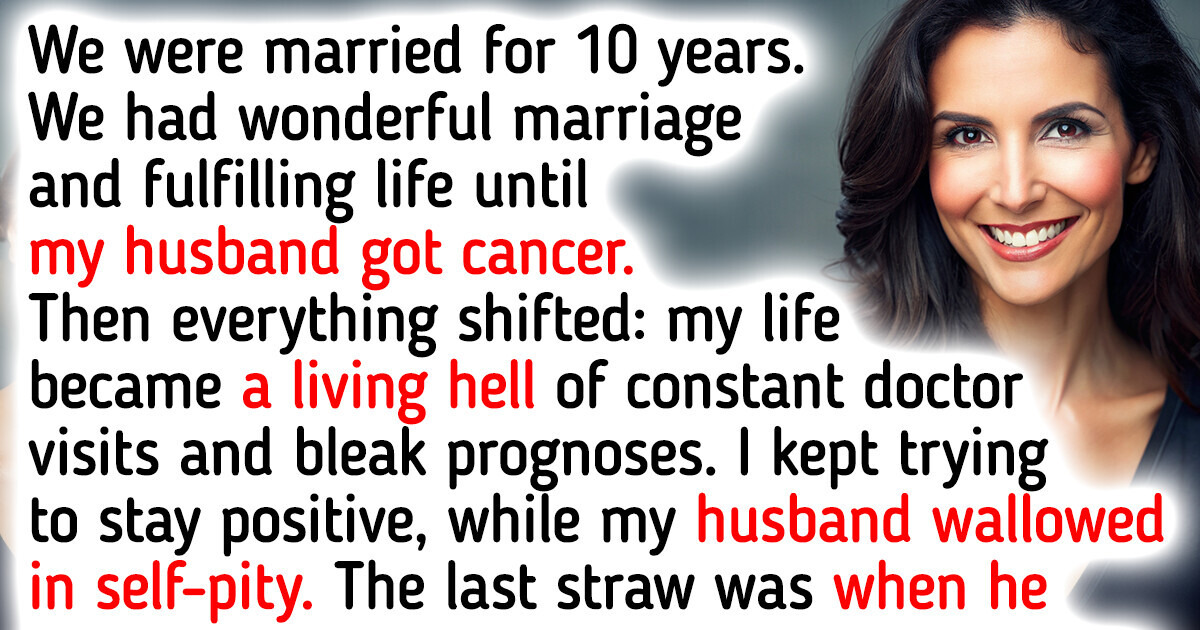
The wonderful marriage of 10 years was shattered by the devastating news of her husband’s diagnosis.

“My husband and I were married for 10 years, enjoying a wonderful marriage and fulfilling life together. We visited over 40 countries, engaged in extreme sports, and built successful careers. Everything changed when my husband was diagnosed with cancer. I was in such shock that it felt like my world had literally collapsed.”
“It took me several months to come to terms with the diagnosis and adjust to our new way of life. However, I eventually pulled myself together and made a firm decision that we would face this challenge together.”
The woman took charge of everything, from managing the household to overseeing her husband’s treatment.

“I quit my job and took on the full responsibility of managing our household and my husband’s treatment. I coordinated his doctor visits and diligently searched for new doctors and alternative treatment options. I handled everything from scheduling appointments and managing medications to keeping track of medical records and exploring cutting-edge therapies. My days were consumed with ensuring he received the best possible care while also maintaining some semblance of normalcy at home.”
Her husband wallowed into self-pity.
“My life became a living hell with a relentless cycle of constant doctor visits and grim prognoses. I tried to stay positive, doing my best to keep our spirits up, while my husband wallowed into self-pity. The last straw was when he refused to undergo chemotherapy, claiming it was too painful and wouldn’t guarantee him a cure.
It seemed as though he had stopped seeing me altogether. All he could focus on was his own pain and suffering. He didn’t notice the efforts I was making or acknowledge the fact that I, too, was struggling and hurting. I sacrificed everything to support him through this journey, so his decision felt like a betrayal.”
“I begged and pleaded with him, trying to convince him that it was his best chance at survival. But he remained adamant, choosing instead to pursue alternative treatments that offered little scientific evidence of effectiveness.
As his condition deteriorated, so did our relationship. Resentment built up inside me as I watched him surrender to his illness without putting up a fight. I felt betrayed and abandoned, left to carry the burden of his sickness alone.”
She made a decision to leave her husband.
“Despite my frustration and anger, I couldn’t bring myself to leave him. I made a vow to stand by him in sickness and in health, and I intended to honor it. But as the days turned into weeks and the weeks turned into months, I found myself questioning everything.”
“One fateful night, as I sat by his bedside, watching him sleep fitfully, I reached my breaking point. The exhaustion of being his caretaker, the weight of his illness pressing down on me—it was all too much to bear. I knew then that I had to make a choice for myself, for my own sanity and well-being. This night I made the most difficult decision of my life.”
Her decision left a deep scar in her soul.
“This decision left a profound scar on my soul. It triggered a negative reaction from our mutual friends and relatives. Many simply failed to understand me and believed I had betrayed my husband.
It took several years of therapy for me to realize that I am not a bad person, that I prioritized myself in this situation. My husband made his decision, and I made mine.”
“I hope that my story will help those who find themselves in a similar situation. It’s crucial to seek help from a psychologist, both for the patients themselves and for their family members. Maybe our story would have ended differently if we had just visited a couple’s therapist.”
BONUS: Psychological tips for caregivers of cancer patients

- Ask for help. Many caregivers say that, looking back, they took too much on themselves. Or they wish they had asked for help from friends or family sooner. Take an honest look at what you can and can’t do. What things do you need or want to do yourself? What tasks can you turn over or share with people?
- Take care of yourself. All family caregivers need support. But you may feel that your needs aren’t important right now, since you’re not the cancer patient. You may be so used to taking care of someone else that it’s hard for you to change focus. But caring for your own needs, hopes, and desires can give you the strength you need to carry on.
- Understand your feelings. Giving yourself an outlet for your own thoughts and feelings is important. Think about what would help lift your spirits. Would talking with others help ease your load? Or would you rather have quiet time by yourself? Maybe you need both, depending on what’s going on in your life. It’s helpful for you and others to know what you need.
- Write in a journal. Research shows that writing or journaling can help relieve negative thoughts and feelings. And it may actually help improve your own health. You might write about your most stressful experiences. Or you may want to express your deepest thoughts and feelings. You can also write about things that make you feel good, such as a pretty day or a kind coworker or friend.
- Join a support group. Support groups can meet in person, by phone, or online. They may help you gain new insights into what is happening, get ideas about how to cope, and help you know that you’re not alone. Many hospitals, cancer centers, community groups, and schools offer cancer support groups.
Here are some ways to find groups near you:
- Call your local hospital and ask about its cancer support programs.
- Ask your social worker to suggest groups.
- Talk to other patients who have tried support groups.
- Do an online search for groups. Or go to the NCI database Organizations that Offer Cancer Support Services for suggestions.
Our other reader wrote to Bright Side to tell her heart-wrenching story of friendship and betrayal, when she broke up with her fiancé right before the wedding after reading a note from her maid of honor.
Comments
Related Reads
24 Stories That Prove Family Bonds Are Like No Other

I Refuse to Delay Our Family Trip Because of My Sick DIL
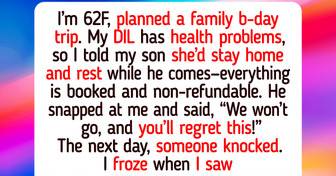
15 Moments That Show Kindness Is Quiet but Changes Everything

18 Pets Who Proved They Understand the World Much Better Than We Think

I Won’t Sacrifice My Last Good Years Because My Son Refuses to Grow Up
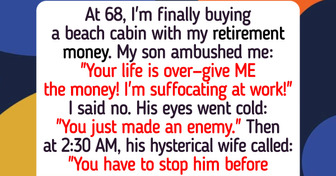
15 “How We Met” Stories Destined to Become Family Legends
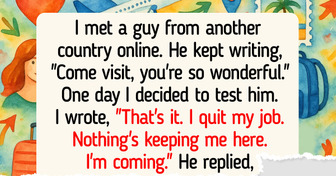
10 Jaw-Dropping Stories Where One Moment Changed Everything

12 Stories That Prove Real Kindness Is About Actions, Not Words
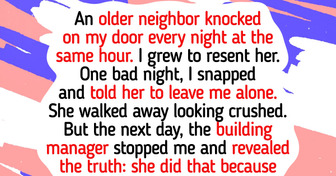
15 Success Moments From Strangers That Deserve All the Golden Buzzers in the World
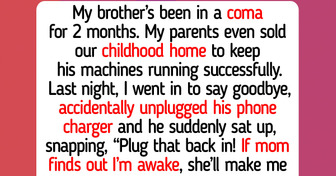
15 Moments That Prove Kindness Holds Strong When Life Hits Hard
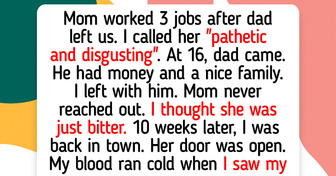
I Refuse to Let My Sister Get Away Without Repaying My Money, I’m Not Charity
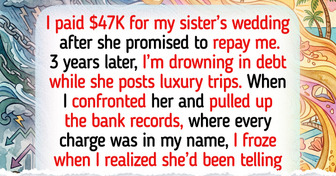
15 Times Meeting the Family Was Funnier Than Any Movie Script
